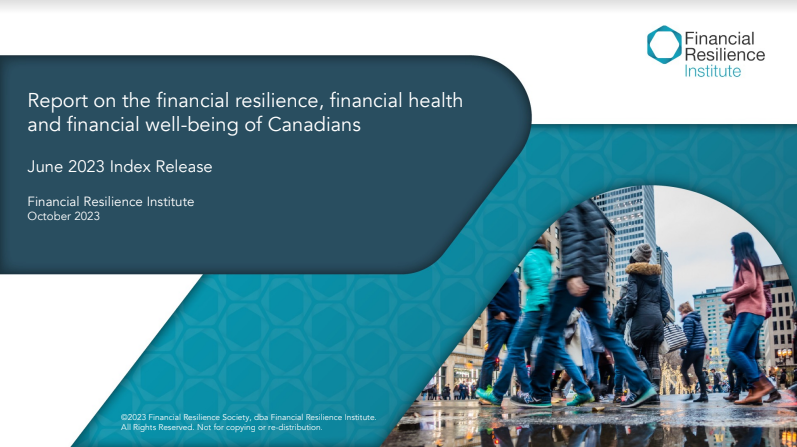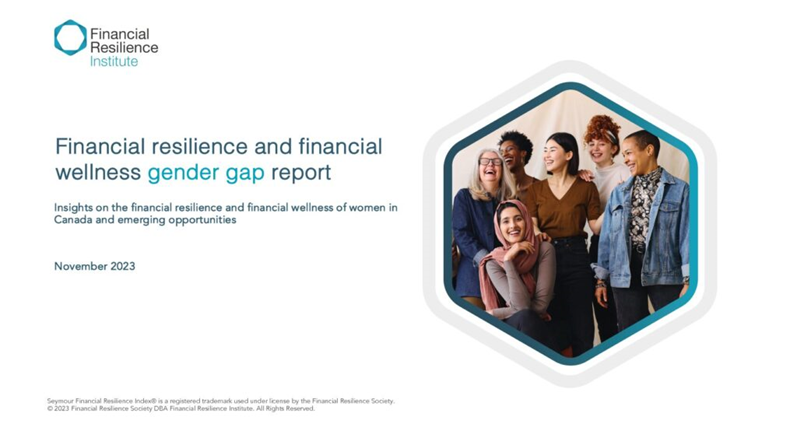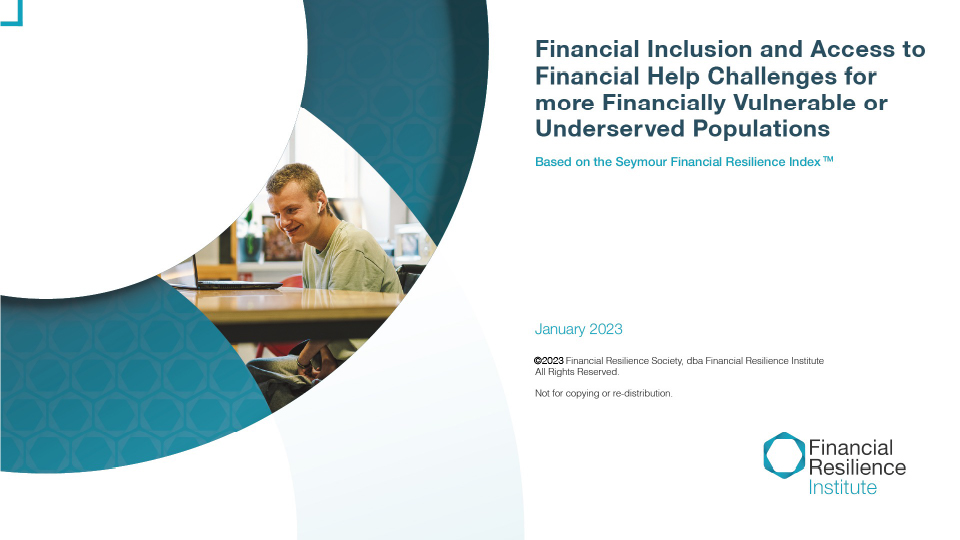Financial vulnerability is a mainstream issue
More Canadians are feeling the effects of housing affordability, the high cost of living, and extreme weather events.
Did you know that 78% of Canadians have some level of financial vulnerability?
Based on the February 2024 Seymour Financial Resilience Index®.
’Extremely Vulnerable’ households have a financial resilience score of 0 to 30; ‘Financially Vulnerable’ a score of 30.01 to 50; ‘Approaching Resilience’ a score of 50.01 to 70, and ‘Financially Resilient’ a score of 70.01 to 100.
Financial vulnerability spans all income levels, but who’s hit the hardest?
Canadians who are more financially vulnerable, underserved, or facing systemic barriers, including:
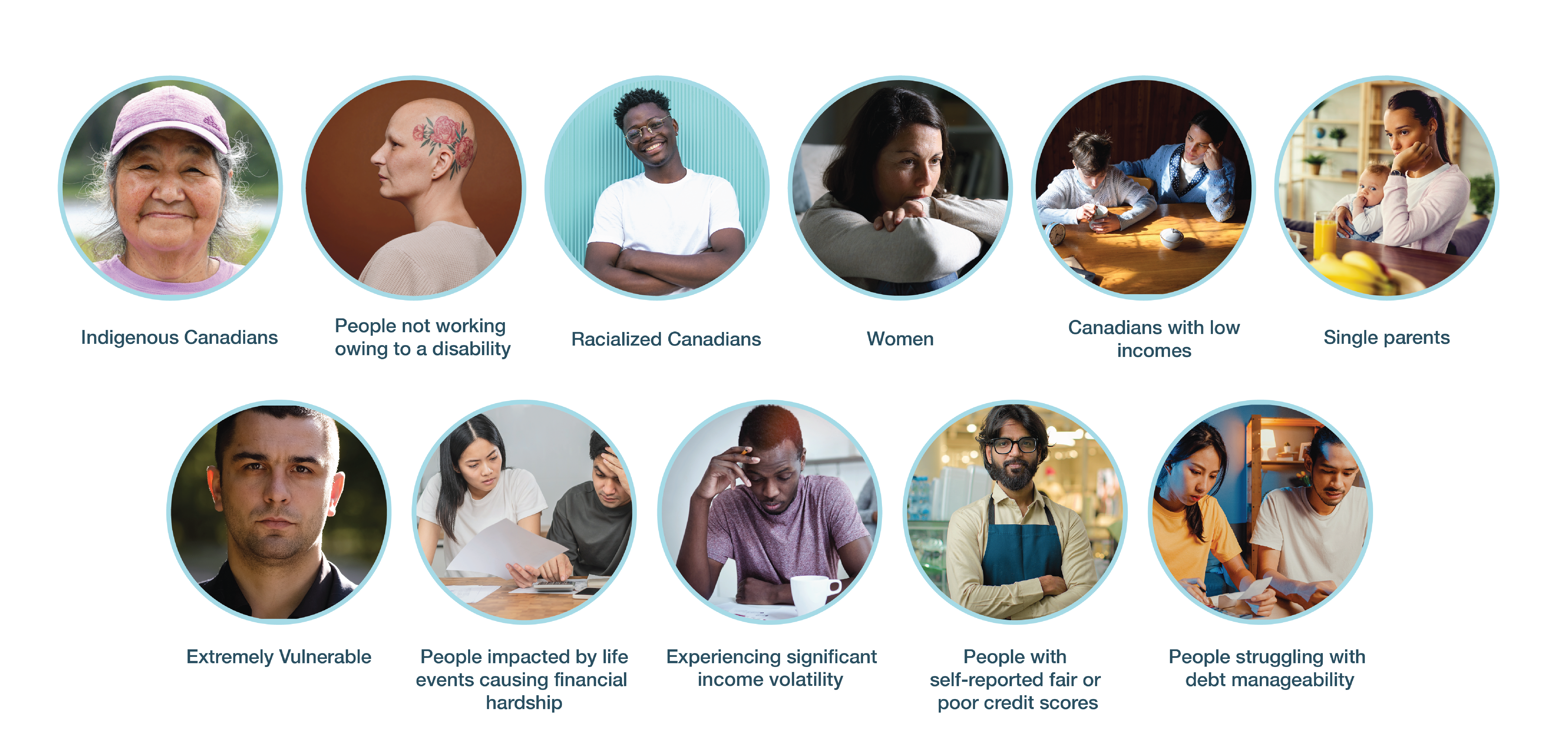
Clear links exist between financial well-being and overall health and well-being
Respondents who scored as ‘Extremely Vulnerable’ through the Index were much more likely to report lower levels of emotional well‐being, physical well‐being, satisfaction with work, and feelings of connectedness with others. ‘Extremely Vulnerable’ families reported lower levels of well-being across all dimensions.
- 66% of people say money worries impact their mental health
- 68% say money worries cause emotional stress
- 42% say money worries impact their productivity or performance at work
- 46% say money worries make them physically unwell
- 50% say money worries make them lose sleep at night

Learn more about financial health, resilience, inclusion and well-being in Canada:
When individual Canadians thrive, so do families, small businesses, and the economy
Financial resilience and well-being of individuals support family and community well-being across generations. The health and resilience of small businesses are also critical to a thriving Canadian economy.
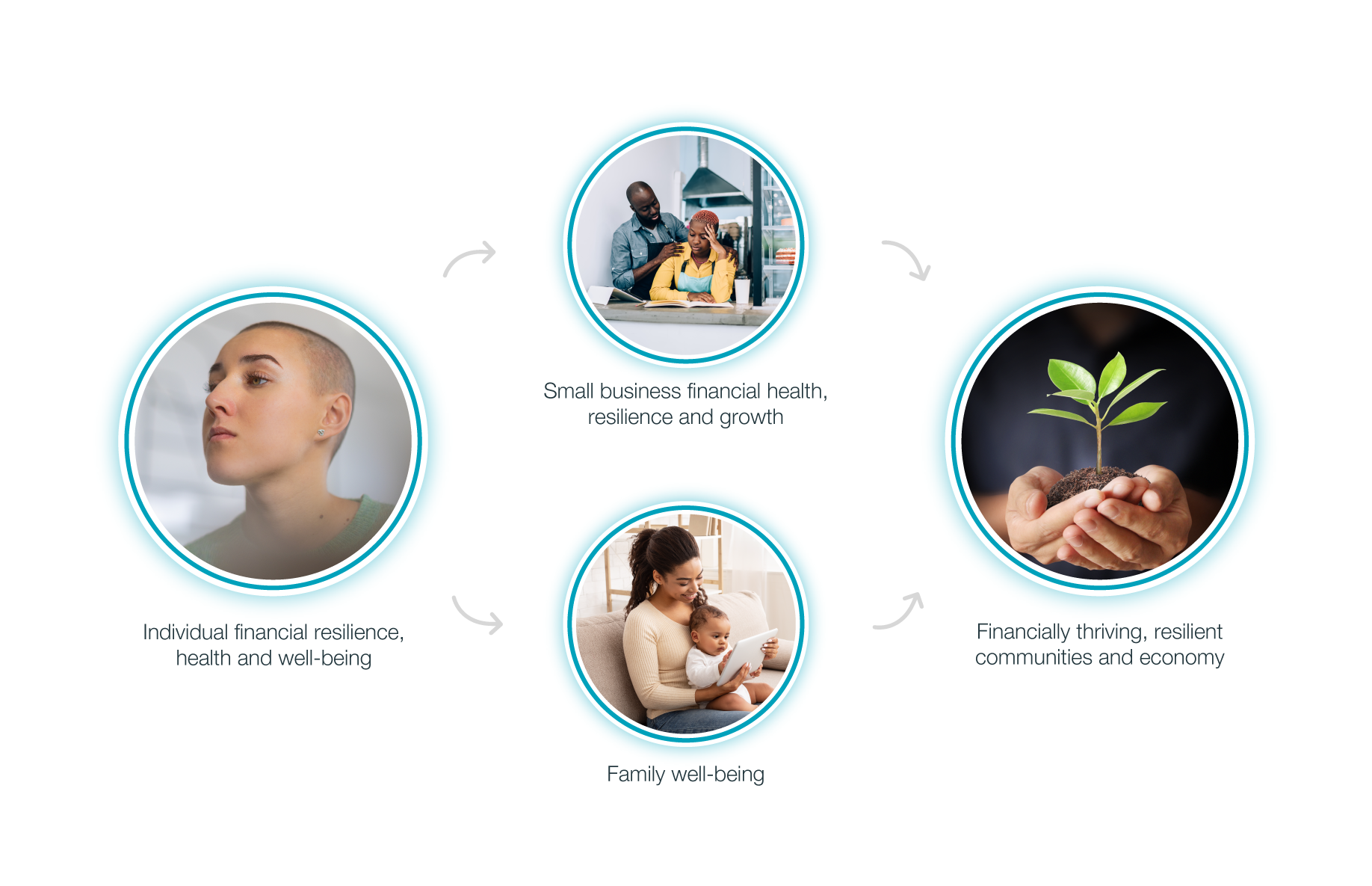
Financial vulnerability has multiple knock-on impacts on the health, resilience, and well-being of Canadians—not to mention on the resilience of communities and the economy. So what can we do about it?
Tackling the complex problem of financial vulnerability is a shared responsibility
The Financial Resilience Institute partners with many stakeholders within the ecosystem that play a role in enabling Canadians to maintain and improve their financial well-being.
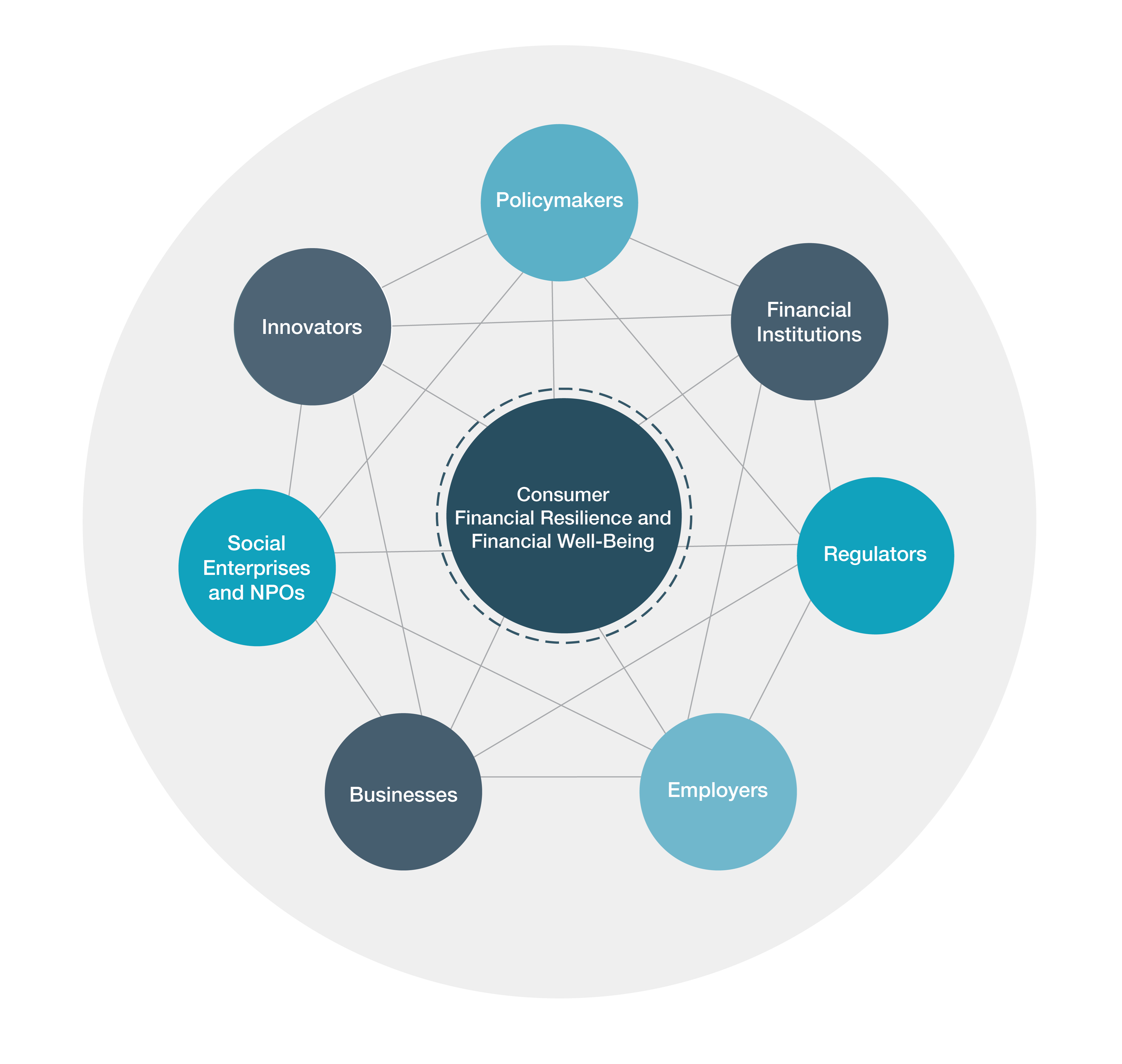
The Financial Resilience Institute is working to help improve
financial resilience for all
We believe in the power of evidence to build resilience, improve lives, and strengthen communities.
Learn more about our work and how we’re helping to build a more equitable, resilient and inclusive Canada.

